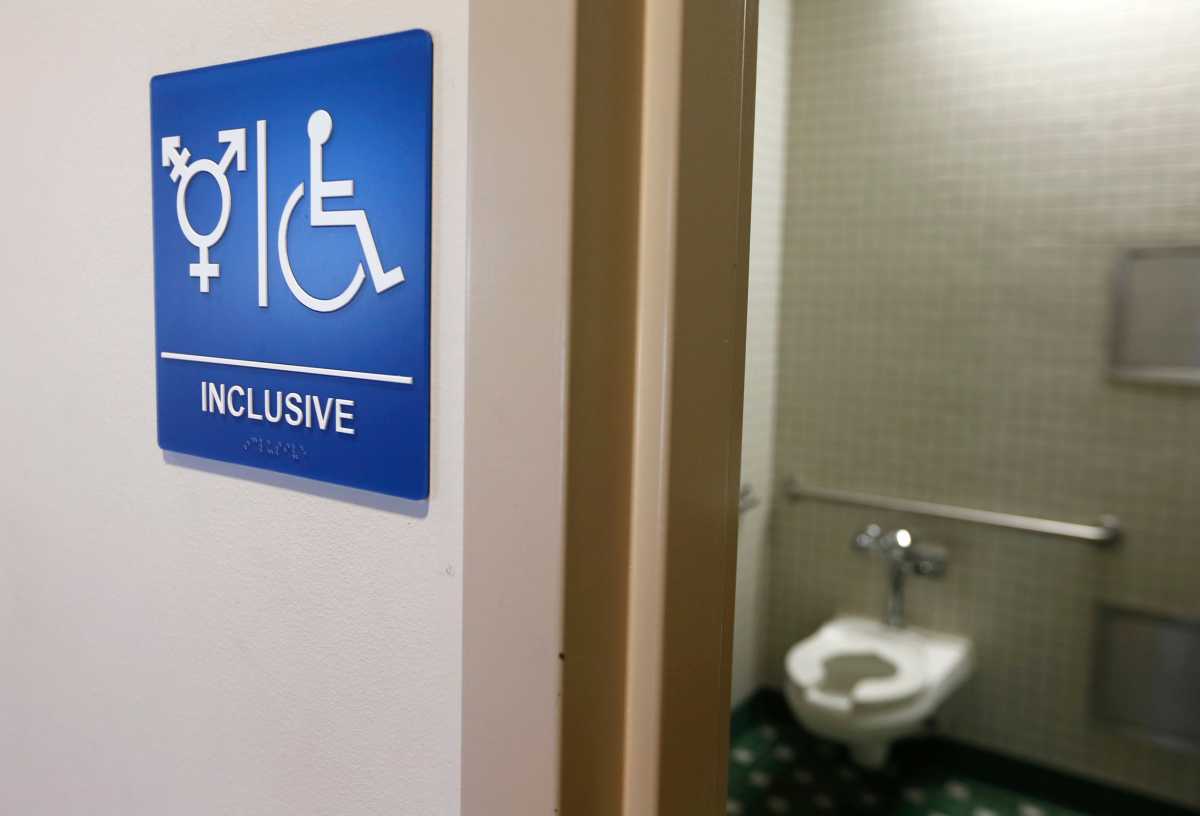The U.S. Supreme Court on Monday declined to take up a major transgender rights case, leaving in place a lower court’s ruling that a Virginia public school board acted unlawfully in preventing a transgender student from using a bathroom at his high school that corresponded with his gender identity.
The justices opted not to hear the Gloucester County School Board’s appeal of a 2020 ruling by the Richmond-based 4th U.S. Circuit Court of Appeals that transgender student Gavin Grimm is protected under the federal law that bars sex discrimination in education, known as Title IX, and the U.S. Constitution’s requirement that people be treated equally under the law. The 4th Circuit ruling does not set a national legal precedent.
The Supreme Court’s decision to reject the appeal represents a victory for Grimm, who sued the school board in 2015 after officials at a local public high school refused to allow him to use the boys’ restrooms. The Supreme Court previously took up the case in 2016 but did not issue a ruling and sent it back to lower courts.
“We won,” Grimm wrote on Twitter. “I have nothing more to say but thank you, thank you, thank you. Honored to have been part of this victory.”
The brief court order noted that conservative Justices Clarence Thomas and Samuel Alito would have taken up the case.
President Joe Biden’s administration, reversing the position taken by the government under his predecessor Donald Trump, said on June 16 that Title IX protects both gender identity and sexual orientation. The administration has not said specifically how that applies to school bathroom access.
Grimm, assigned female gender at birth, identifies as male. Grimm, now 22, graduated from the school in 2017.
Grimm began attending Gloucester High School in September 2014. With the school’s permission, Grimm used the boys’ bathroom for about seven weeks without incident.
But after complaints from parents, the county school board adopted a new policy in December 2014 that required students to use the bathroom that corresponded with their gender at birth. Grimm was given the option of using a separate gender-neutral bathroom, but refused to do so, feeling stigmatized.

Judge Henry Floyd, writing for the 4th Circuit, said the school board’s actions constituted “a special kind of discrimination against a child that he will no doubt carry with him for life.” The 4th Circuit upheld a federal judge’s 2019 ruling in Grimm’s favor.
Bathroom access has become a major issue in the battle over transgender rights, and Grimm’s suit has been the most prominent legal case on the subject.
Grimm’s case was previously set to be argued at the Supreme Court in 2017 but was taken off the schedule after Trump’s administration rescinded guidance issued under his predecessor Barack Obama regarding bathroom access for transgender students. Trump sought to roll back transgender rights in other areas, and his fellow Republicans in several states have passed laws seeking to restrict transgender girls in school sports.
The Biden administration has reversed various Trump policies on LGBT issues.
The Supreme Court issued a landmark 2020 ruling that gay and transgender people are protected under a federal law that bars sex discrimination in employment.
That ruling helped guide the 4th Circuit’s decision in the Grimm case and the Biden administration’s position on Title IX protections. Floyd wrote that in light of the 2020 ruling, “we have little difficulty in holding that a bathroom policy precluding Grimm from using the boys restrooms discriminated against him.”




























